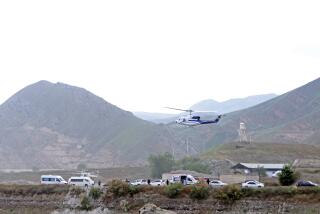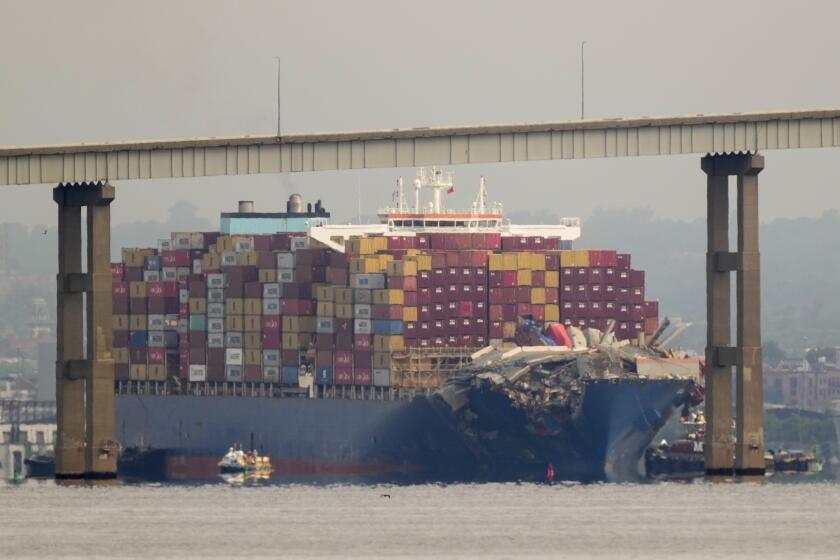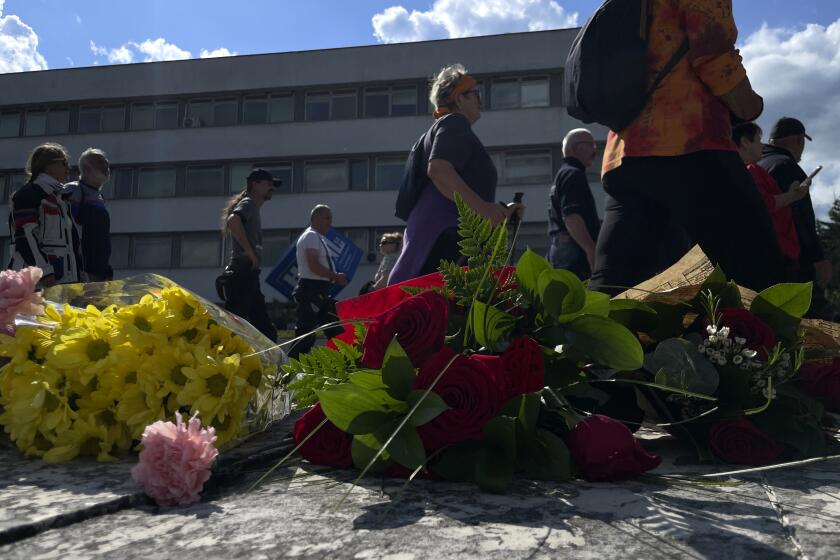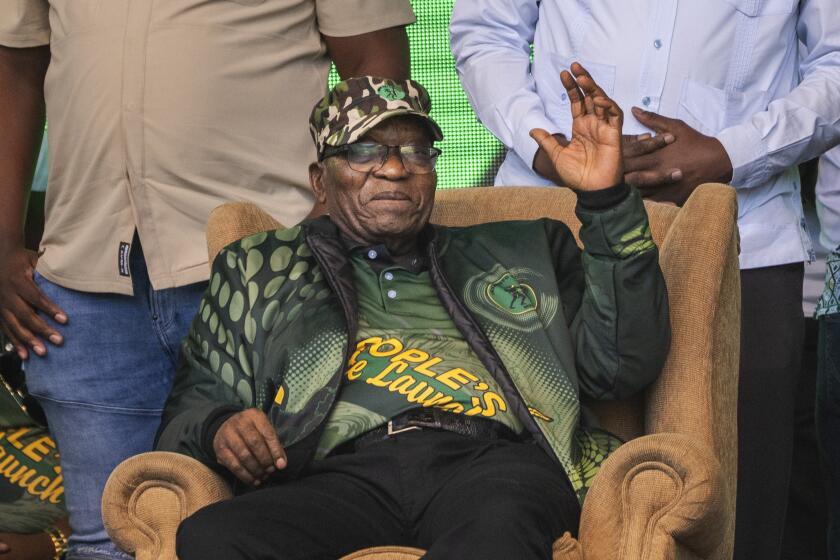Refugees Return to Destruction at Camp in Gaza
It had been a week since Eyad Yousef was home and saw his family, which was hemmed in, along with the rest of the neighborhood, behind a cordon of Israeli tanks and soldiers.
Yousef made it home Monday, after the soldiers pulled away, ending the six-day siege. The 32-year-old was greeted by flattened greenhouses, torn-up streets and a number of smashed buildings.
“It looks very black,” Yousef said in the Tel Sultan neighborhood, where Israeli forces began their incursion into the Rafah refugee camp last Tuesday. “The picture for me is very black.”
That sadness was common in the crowded neighborhood of about 25,000 people as visitors entered for the first time since Israel sealed off Tel Sultan. Israel’s move was part of an operation that it said was aimed at finding Palestinian militants and weapons-smuggling tunnels.
By Monday night, Israeli troops had left the last two neighborhoods in Rafah, but it was not clear if that ended the incursion, called Operation Rainbow.
More than 40 Palestinians were killed and dozens injured during the offensive, which drew sharp criticism from abroad. There were no Israeli casualties.
Left behind in Tel Sultan were empty tracts and the splintered remains of greenhouses that had formerly covered the agricultural areas. Trenches gouged the streets, leaving pools of raw sewage. Dozens of buildings appeared to have been damaged by bulldozers and tanks, or pockmarked by the shooting.
Open-sided mourning tents popped up as relatives were for the first time able to bury the dead, some stored in a makeshift morgue since last week. The streets of Tel Sultan were clogged with thousands of mourners as families held funerals for 16 people killed during the violence.
On one street corner, residents pointed to where they said three Palestinian men were killed in separate shootings.
“Because of the heavy shooting, we didn’t understand what was going on,” said Mahmoud Shalayel, 69, standing next to a tent erected in honor of a neighbor, a 24-year-old Palestinian police officer. “There was shooting on all sides.”
The tight seal around the neighborhood and constant gunfire in the narrow streets left many residents cowering inside their homes for days without electricity or running water, they said.
By Monday, the water was just a trickle and most of the area still lacked electricity and telephone service.
Yousef was at work in the city of Khan Yunis, about 10 miles to the northeast, when the Israeli troops shut off Rafah. For two days, he said, he was able to stay in touch with his relatives by cellphone until they could no longer keep the phones charged. After that, he was only able to keep tabs on the fighting by radio and to hope for the best.
Meanwhile, 60 members of his family huddled in side-by-side homes. For safety, the whole group slept in two adjoining rooms on the first floor.
For other residents, the fighting came crashing into their homes.
Zaki Judeh, a 58-year-old retired teacher, said his family was confined to a third-floor bedroom after an Israeli tank smashed through a wall on the main floor and soldiers turned the home into a sniper’s lookout for 48 hours. No one was injured.
On Monday, Judeh received a steady stream of well-wishers who previously had been unable to make it to Tel Sultan.
Standing before a gaping hole in the wall, Judeh lashed out. “Shall I tell you about the continuous shooting of every kind of weapon? The movement of tanks and bulldozers that made the building shake? It felt like an earthquake,” he said. “They wanted to terrify us.”
Israeli officials denied targeting civilians and said they took steps to permit water and electrical lines to be repaired.
Military officials said soldiers demolished only houses where gunmen had taken shelter. Israel said Monday that 56 had been destroyed, well below Palestinian estimates.
The army’s Gaza commander, Brig. Gen. Shmuel Zakai, told reporters Monday that troops had killed 41 militants, along with 12 civilians. That total -- 53 dead -- is higher that the toll provided to the news media by Palestinian hospital officials, who tallied 41 deaths.
Zakai said soldiers found and destroyed three tunnels used to smuggle arms beneath the Egyptian border and arrested suspected militants.
Israel launched the incursion a week after Palestinian militants killed 13 Israeli soldiers in separate attacks in the Gaza Strip. Most were slain near Rafah, a dense collection of concrete-block buildings that has seen almost daily clashes during nearly four years of conflict.
The latest operation stood out for its size, intensity and timing. Israel is debating a proposal by Prime Minister Ariel Sharon to withdraw Jewish settlements and the troops who defend them in the Gaza Strip. Sharon said he planned to deliver a revised proposal to government ministers this week before seeking Cabinet approval Sunday. The new plan is expected to call for dismantling the settlements in stages.
More to Read
Start your day right
Sign up for Essential California for news, features and recommendations from the L.A. Times and beyond in your inbox six days a week.
You may occasionally receive promotional content from the Los Angeles Times.






